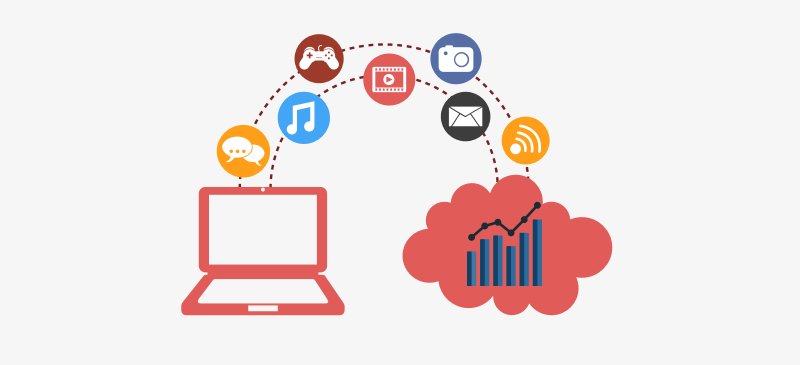
Do your projects start to drift off course right at the beginning? Are last-minute delays and budget overruns becoming common?
If your answer is “Yes,” you’re most likely setting sail without a destination.
You need a robust project management system that helps you see the project take shape with a clear action plan.
When done well, project management can deliver a wide range of benefits. From optimal resource allocation to improved team accountability and accurate budget management to positive client relationships, project management benefits are many and varied.
In this blog, we’ll explore some key benefits of project management and how it can help your organization achieve its goals effectively.
So let’s get started!
What Is Project Management?
Project management is the process of planning, organizing, and overseeing the completion of projects.
It involves balancing the constraints of time, budget, and resources to ensure successful project delivery.
But what are the key benefits of project management?
Key project management benefits include improved team accountability, reduced risk of project failure, better communication and collaboration, and increased stakeholder satisfaction.
So by implementing project management methodologies and tools, organizations can streamline their workflows and achieve their goals with greater ease and effectiveness.
Now let’s dig deeper into the importance of project management.
15 Proven Benefits of Project Management
Here are 15 proven project management benefits leading to successful project outcomes.
1. Clear Project Ownership
Imagine being stranded on a ship lost at sea without a captain to guide it back on course. It can leave you feeling utterly helpless and powerless.
That same sense of helplessness and powerlessness can arise when a project begins to veer off track, but there’s no project manager available to steer it back on course.
This is where clear ownership and accountability come into play.
Without someone to take responsibility for the project’s success, you risk missing deadlines, exceeding budgets, and compromising quality.
To illustrate this point, let’s look at the construction of a new society tower. The architect might have a grand vision, but the project manager takes ownership of making that vision a reality. They’ll oversee the contractors, manage the budget, and ensure the project is delivered on time and to the highest standards.
But the project manager can’t do it alone. They’ll need to delegate tasks to other team members, such as the engineer, electrician, and plumber. Each team member will have their own responsibilities, such as ensuring the building is structurally sound, the electrical systems are safe and efficient, and the plumbing is installed correctly.
With clear ownership and accountability, everyone involved in the project knows what they need to do and when they need to do it. Deadlines, dependencies, and priorities are clearly defined, so there are no discrepancies or misunderstandings. This not only ensures the project is completed on time and within budget, but it also encourages team members to take pride in their work and take responsibility for their assigned tasks.
Read More: Top Practices for Prioritizing Project Work for Your Team
2. Realistic Planning
A key factor in project success is realistic planning. Project managers who establish achievable SMART goals and anticipate potential roadblocks are better equipped to deliver projects on time and within budget.
For example, imagine you’re leading a marketing campaign. You’d start by defining a timeline for market research, creative development, and campaign execution. Then, you’d allocate resources optimally, avoiding a team burnout. You will also define project priorities and milestones. Accurately estimating each of these factors would establish how effectively you’ll achieve your goals.
By setting realistic project schedules, scope, and resource requirements, project managers can mitigate risks, minimize delays, and maximize the chances of a successful project outcome.
It’s also essential to remember that realistic planning is an ongoing process. Project managers must continuously monitor and adjust their plans to ensure the project stays on track.
Read More: Drive Your Projects to Success With a Powerful Project Implementation Plan
3. Improves Team Accountability
In project management, accountability is key to achieving success. It ensures that team members take ownership of their assigned tasks and deliverables, ensuring everything is completed on time and as expected.
This is also where well-thought-out workflows and clearly defined task responsibilities come into play. When team members have a clear understanding of their roles and responsibilities, they are motivated to work productively and efficiently toward meeting task deadlines.
Empowering team accountability through project management makes the team more likely to be invested in the project’s success. As a result, the project is delivered on time, within budget, and to the client’s satisfaction.
Read More: 10 Project Manager Roles And Responsibilities
4. Clearly Defined Scope of Work
Have you ever found yourself working on tasks that weren’t part of the original project plan?
If so, you’re not alone. Scope creep is a common problem in project management, where a project’s goals and requirements gradually expand beyond their original scope.
Defining a clear project scope with management techniques is crucial for avoiding scope creep and ensuring project success.
A well-defined scope establishes the project’s boundaries and outlines what is and isn’t included in the project. This helps to manage stakeholder expectations, preventing misunderstandings and disagreements down the line.
5. Stick to the Define Budget
A key benefit of project management is that you are less likely to exceed the budget.
Defining and sticking to a project budget with reliable project management methods helps prevent overruns, which can impact profitability, cash flow, and future projects.
So before you set out to work on tasks, ensure that you estimate the costs of materials, labor, and equipment needed for each task. Because without proper budget planning and control, projects can quickly spiral out of control, resulting in significant financial losses.
With budget constraints in mind, you can balance the resources required to complete the project with the resources available, ensuring the project remains on track financially.
Read More: What Is Cost Management in Project Management
6. Nail the Project Delivery Timeline
Using project management techniques, you can create a realistic project timeline by setting achievable milestones and breaking the project down into manageable tasks.
So if your team is working on a project, say creating a new app, team members must meet specific milestones to ensure the app is ready for release on the planned launch date. The team can achieve this by completing each task on time, allowing the project to be completed on schedule.
Timely delivery ensures that the stakeholders’ expectations are met, and resources are not wasted. It also reduces the risk of additional costs associated with delays, such as missed business opportunities or contractual penalties.
Ultimately, completing a project on schedule can positively impact the team’s reputation, leading to more business opportunities in the future.
Read More: How Do You Ensure You Meet Your Project Deadlines
7. Simple Risk Management
A prominent advantage of project management is efficient risk management.
A construction project may identify potential delays due to weather or supply chain issues. Similarly, a marketing project may identify potential roadblocks due to resource unavailability or changing client requirements.
Effective project management involves identifying and developing strategies to mitigate or avoid these potential risks. This helps prevent issues from derailing the project and reduces the impact of any arising problems.
Read More: How to Overcome Risks Using a Comprehensive Risk Management Plan
8. Positive Stakeholder Relationships
Let’s start by understanding who stakeholders are and why we need to maintain a good relationship with them.
Stakeholders are individuals or groups vested in the project’s success, such as customers, suppliers, and investors. And project management enables you to communicate with these stakeholders regularly, keep them informed about progress, and address any concerns or issues.
Maintaining positive stakeholder relationships builds trust and leads to increased support and investment in the project. It helps you gather valuable feedback that you can use to improve future projects.
Additionally, happy stakeholders are more likely to recommend the project to others, leading to increased business opportunities in the future.
So if you wish to strengthen your relationship with stakeholders, keep them in the loop throughout your project. Keep them informed about the product’s development and address any concerns they may have.
For instance, imagine a software development project for a client. The project manager can inform the client about the development progress by sharing weekly updates and conducting regular meetings. Keeping the client in the loop allows the project manager to manage expectations, identify potential issues early on, and make necessary adjustments.
9. Systematic Record Management
With efficient project management, project managers can document all aspects of the project, including timelines, budgets, progress reports, and stakeholder communication.
Suppose you’re working on a marketing campaign. If you have set clear channels of project management, you can track ad spend, conversions, and customer feedback accurately to analyze the campaign’s success.
Maintaining these records provides you with a valuable reference for future projects. By reviewing past projects’ records, you can identify areas for improvement and refine your approach to future projects. Also, by documenting every aspect of the project, you can ensure that you have the necessary data to meet any reporting requirements.
10. Monitor Key Project Health Metrics
Another advantage of project management is access to key project health metrics.
As a project manager, you need to track metrics such as budget, timeline, and scope to identify potential issues and make data-driven decisions.
For example, in a design project, tracking the progress of each phase of the project, such as briefing, ideation, prototyping, and designing, helps you identify if any phase is behind schedule or over budget. You can then take corrective action, such as adding resources or reallocating the budget, to keep the project on track.
Furthermore, project health metrics provide valuable insights for future projects. By analyzing data from previous projects, you can identify trends, strengths, and weaknesses, which you can use to improve project processes and outcomes.
Using a project management tool like ProProfs Project offers key insights into team and project performance.
The tool extracts project data and provides insightful reports on key project metrics.
This is what a Summary report looks like in ProProfs.

11. Improved Ability to Handle Big & Complex Projects
Supporting organizations to take on more complex projects is a significant benefit of project management.
Effective project management provides the structure and tools necessary for more complex projects while minimizing risk.
If we take the example of an event management company here, you can leverage project management principles to take on large-scale projects. Here, project management provides the necessary oversight and controls to manage the project’s complexities, such as managing multiple vendors and contractors, ensuring regulatory compliance, and monitoring on-site events.
By successfully completing more complex projects, organizations can differentiate themselves from competitors and increase their reputation and market share.
12. Better Team Building
A key purpose of project management is building the team to be in sync with each other.
Organizing a team around a common goal can foster collaboration, build trust, and encourage communication. This leads to better decision-making, improved morale, and increased productivity.
So if you’re managing a project, say a software development project, you may assemble a team of programmers, designers, and testers who work together to deliver a high-quality product. By fostering a collaborative environment, the team can tackle complex problems, share ideas, and ultimately build a better product.
A well-built team not only delivers better results but also increases job satisfaction and reduces turnover rates, saving the organization time and money in recruiting and training new hires.
Read More: Team Collaboration Strategies You Need to Adopt Right Now
13. Improved Business Communications
Project management enables smooth communication among team members by establishing clear lines of communication, defining roles and responsibilities, and setting expectations for feedback and collaboration.
By ensuring that all team members are on the same page and have the information they need, the project manager can help prevent delays and misunderstandings. This helps keep everyone informed, engaged, and focused on the project’s goals.
A tool like ProProfs lets you exchange information and feedback via task comments.
Here is how it works.
In the task’s comment box under the ‘Activity’ section, type @ followed by the initials of the user’s name to reveal the user list starting with that letter. Select the user you want to tag.

Then click on ‘Add’ to add your comment to the task.

An email will be sent to the tagged team member. This is how it will look like.

That’s easy, right!
14. Seamless Change Management
A critical importance of project management is handling change management.
Change is inevitable in any project, but managing it can be a complex and challenging process.
Project management enables seamless change management by providing a framework for identifying, evaluating, and implementing changes while minimizing disruption and maintaining project goals.
For example, when managing a social media campaign, you may encounter unexpected changes in the target audience or budget constraints. By using change management tools and techniques, such as risk assessment and stakeholder engagement, you can assess the impact of these changes and make adjustments without compromising the campaign’s effectiveness.
This approach helps ensure that the project stays on track and delivers the desired outcomes, even in the face of unforeseen challenges.
Read More: Change Management in Project Management: An Ultimate Guide
15. Optimal Utilization of Resources
Optimal utilization of resources is a key benefit of project management.
By carefully planning and managing resources, you, as a project manager, can ensure they are used efficiently and effectively, reducing waste and maximizing project outcomes.
For instance, when managing a manufacturing project, you may allocate resources such as labor, equipment, and materials to ensure that production runs smoothly and costs are kept under control.
By monitoring resource usage and adjusting plans as needed, you can avoid overburdening resources and identify opportunities for improvement.
Read More: Resource Planning for Multiple Projects: A Guide for 2024
Drive Better Business Outcomes Using Effective Project Management Tactics
By now, you have a fair idea about the various project management benefits. Project management is important and must be leveraged actively to deliver project success.
Using a robust project management software such as ProProfs Project is an excellent way to keep everything centralized and never miss a beat. It lets you manage tasks, resources, priorities, dependencies, and timelines from a simple and intuitive dashboard. So whether assigning tasks to team members or monitoring progress in real-time, you can do it all using a single source of truth.
Do you want a free Project Management Software?
We have the #1 Online Project Management Software for effective project management.





